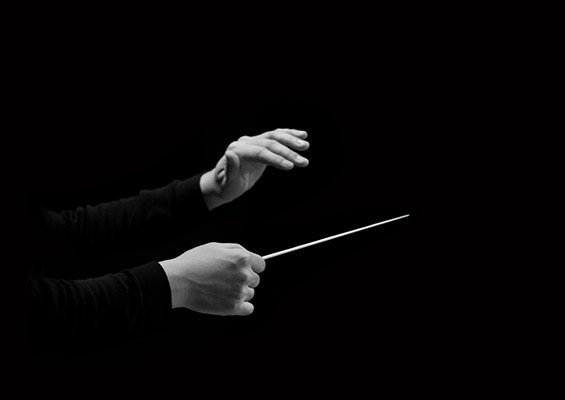
I have not had the opportunity to write a new post on conducting for over a year now, partly to do with the continuing impact of COVID on my schedule and, partly, because I have not felt the need to comment on anything to do with the profession of orchestral and opera conducting. But, yesterday, that changed.
I came across a public domain article (i.e., not one behind a pay-wall) from the Pittsburgh Post-Gazette journalist, Jeremy Reynolds. This is a very good article, informative to the general reader and also part expose on the declining opportunities to study the Art of Conducting in the USA, as opposed to the greater opportunities in Europe.
The issue I have with this article is the individual responses from one of the conductors interviewed. Yes, he is a novice but his thinking is so common-place with the current generation of aspirational conductors; so I have discovered much to my chagrin, I believe it warrants direct critique. I have copied a slightly précis version of the original article below for follow-up reading or you can read the original article here.
The ‘job’ as stated by one interviewee is neither 98% about motivating people nor managing orchestral musicians’ egos. The conductor’s first job – and frankly only job – is to serve the music. If you believe otherwise, you’re not ready to be on the podium in my opinion. Even more egregious is the idea that conductors can practice “by waving your arms along with a recording.” Perhaps the interviewee I am lambasting here could practice by working out what gestures with the use his arms (at the very least) might impart the intention of the music whilst silently studying the score and learning to sight-sing every part in his head? Just a thought. Point: if you’re ‘waving’ your arms to someone else’s recording, you’re doing their performance, not your interpretation of the music. No orchestra hires a conductor with the specific intent to do another conductor’s idea of a piece of music.
Notwithstanding the problems I have with these specific views in Mr. Reynold’s piece, the article does an excellent job of capturing the reality for many young, and not so young, conductors in a profession losing the battle (and in my view, the War) against the rising tide of disinterest in Classical Music. Nevertheless, if these ideas of what the primary role of the conductor is do not change, the decline in audiences attending classical music concerts; exhibiting the pervasive ennui of those who no longer have any trust in what is being offered warranting the price of admission, will continue because it is about the MUSIC – not any single individual conductor’s ego, career-climbing ambitions or longer-term job-hopping strategies to ever greater personal recognition.
Behind the baton: There’s no easy path to becoming an orchestra conductor
Plenty of parents who’ve encountered celebrated abstract art have made famous the phrase “My kid could paint that!”
The sentiment arises from a lack of understanding about the techniques involved in modern art as well as some real and well-documented charlatans in the art world.
There’s a similar lack of understanding about the role of the orchestra conductor, who waves his or her arms in front of groups of musicians to keep them in time, unified in interpretation.
Conductor’s positions are some of the highest paying jobs in the classical music world, with top orchestral appointments earning millions of dollars a year and additional compensation through guest appearances with other orchestras.
Of course, there’s more to the job than meets the eye. Or the ear.
“I didn’t know this when I started down this path, but leadership, charisma, group psychology and the ability to motivate people and manage egos are really about 98% of the job,” said Jacob Joyce, 29, a new assistant conductor at the Pittsburgh Symphony Orchestra.
Put another way, in addition to musical ability, people skills and leadership skills are perhaps the most essential qualifiers for a conductor.
To further illuminate the career of the conductor, the Post-Gazette spoke with the Pittsburgh Symphony’s current and former staff conductors to get a snapshot of what this niche path entails.
In America, there aren’t conducting programs at the undergraduate level typically. Conducting is a vocation discovered during or after college.
There’s no standard path to success.
Take Andres Franco, former assistant PSO conductor and executive director of the North Side nonprofit City of Asylum. He trained as a concert in pianist in Colombia before moving to Texas to earn a master’s degree. His adviser suggested he take a conducting elective for the credits.
“At one of my lessons, my professor asked me to run through a piece with the youth orchestra he conducted,” Franco said. “I remember starting and finishing and nothing that happened in between. It was terrifying, exhilarating.”
Franco’s teacher, the sneaky fellow, was hiding in the orchestra to observe and then advised him to consider a career in conducting.
Another former PSO conductor, Earl Lee, 38, launched his career as a professional cellist before sustaining an injury to his hand. After a few years of teaching and trying to recover, he decided to pursue conducting as a performance outlet.
“I started to read books and study,” he said. “Sometimes you have to learn the basics on your own, but once I was in the education world, the ship started sailing and I could just steer.”
Baton basics
During school, aspiring conductors study scores of famous pieces of music and instrumental techniques and spend time on the podium in front of orchestras to gain experience, though this is rare early on. More commonly, they observe hundreds of hours of professional rehearsals and discuss ways to rehearse efficiently.
“One of the ways you think you can practice is kind of by waving your arms along with a recording,” said Joyce. “But the sensation is completely different from conducting an actual orchestra.
“The reason is that if you’re effectively conducting an orchestra you’re leading and impelling the action.”
This means that, though limited, time in front of actual musicians is the most important part of the training. It’s a terribly high-pressure environment with very limited opportunities in the beginning.
Later, toward the end of these programs, students begin applying to dozens or even hundreds of professional conducting positions.
“You just get so, so many rejections…” Lee said.
Like most jobs in the classical music industry, there are vastly more qualified applicants than positions available.
Wheat and chaff
Orchestras typically invite only a few candidates to audition. Typically, an in-person conducting audition involves an interview and rehearsing with the orchestra to demonstrate efficiency and personality.
It takes far more than musical ability to win a job.
“Chemistry is a great factor,” said Lawrence (“Larry”) Loh, a former resident conductor with the orchestra who is now music director of an orchestra in Syracuse, N.Y.
“When you’re in school, you’re not studying how to be good with people or marketing and development. There’s not a curriculum for that,” he added. “You find out about that part later.”
Of course, not everyone will win a job. Some conductors divert to conducting youth orchestras or teaching. Many leave the field altogether.
First beats
Often, a conductor’s first job is as a staff conductor (assistant, associate, resident — the title varies) at a small to medium-sized orchestra. These are contract positions that last typically from one to four years.
The salaries are livable and dependent on the size of the orchestra and the specific duties, but nowhere near the music director salary. For a rough example, at an orchestra with a $12 million budget, an assistant conductor might make $40,0000-$45,000 a year.
The job usually allows time for other projects and guest engagements and competitions.
“A lot of young conductors have to put things together piecemeal,” Joyce said. “It’s not comfortable. These aren’t jobs you’d want to find yourself in for 20 years.”
Every day is different. Staff conductors “cover” rehearsals, listening in in case the orchestra’s music director gets sick at the last minute. They conduct community and education concerts and some live-with-film orchestra concerts. They might give pre-concert lectures and interact with board members and donors. They weigh in on recording sessions and travel with the orchestra when it goes on tour.
At the end of a contract, an assistant generally tries to win an audition to be an assistant at a larger orchestra or as a full-fledged music director at a smaller orchestra.
To illustrate: Lee moved from assistant at the Pittsburgh Symphony (budget around $30 million) to assistant at the Boston Symphony Orchestra (budget around $107 million) and this year became the music director of the Ann Arbor Symphony Orchestra in Michigan (budget of about $1.3 million).
Major leagues
At some point during the assistantship ladder, many young conductors take on an agent to help secure guest conducting spots and advance their careers.
Loh said he balances his conducting plate with a mix of classical and pops conducting. That’s become a lucrative sideline as he balances his position in Syracuse with regular guest appearances with more than a dozen orchestras.
It’s worth noting that guest conducting can actually pay more than a full-time music directorship, though these positions are more sporadic.
From this point, the hope is it’s a profession that can last a lifetime, with many conductors continuing to work well into their 80s or even 90s. Even Manfred Honeck, the Pittsburgh Symphony’s music director, is still making debuts. In September, he’ll guest conduct the Metropolitan Opera in New York City for the first time.
“When you start, you think you have great musical ideas you want to show the world,” Joyce said. “It takes that kind of ego to want the job, but it’s not really like that in the end. The job is bigger than any one person.”
